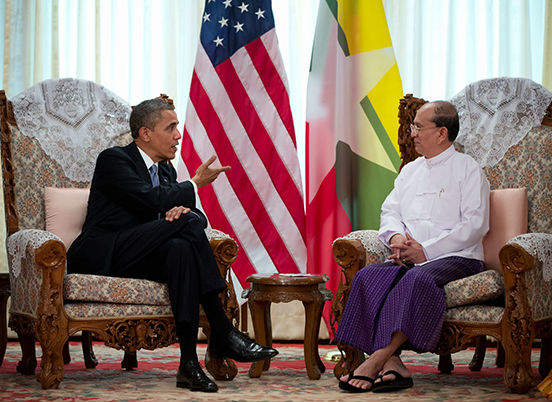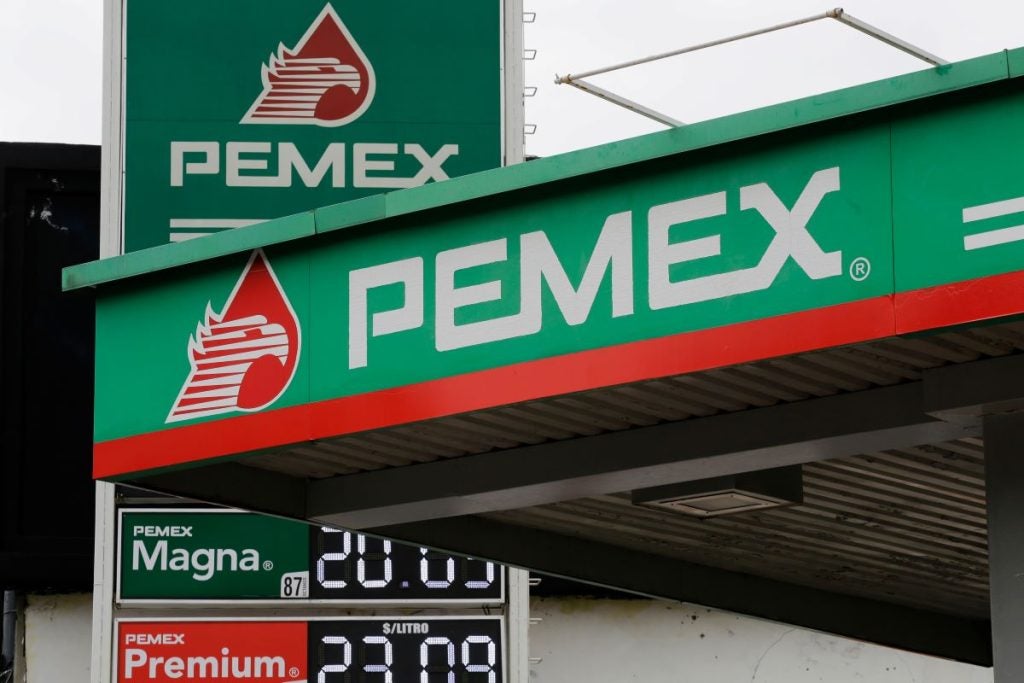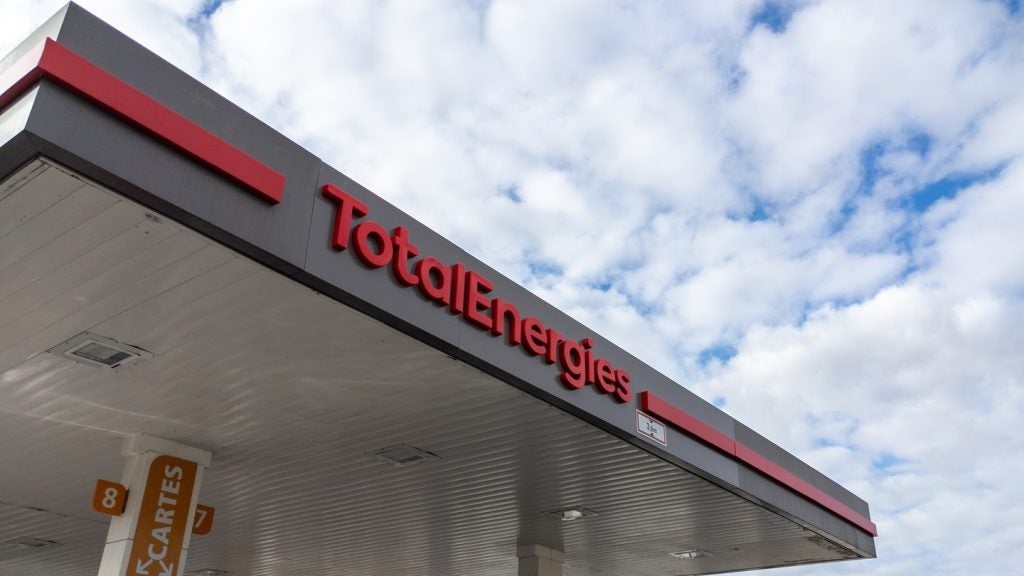

In early January, Australian Woodside Petroleum announced it had made a gas discovery in the Shwe Yee Htun-1 well on the company’s A-6 licence in the deepwater Rakhine Basin off Western Myanmar. The company said it intersected a gross gas column of around 129m, with roughly 15m of net gas pay interpreted within the primary target interval.
The Myanmar Ministry of Energy and Woodside then announced on 12 February that the Thalin-1A well located in block AD-7 in the Bay of Bengal, 100km off northern Myanmar, had intersected a 64m column of gross gas, of which about 62m was net pay within the primary target interval.
The new discoveries come three years after the first ever modern offshore oil and gas licensing round in previously undrilled areas offshore Myanmar.
During the round the government awarded 20 offshore blocks to international companies, including BG Group, Statoil, Eni, Shell, Total, ConocoPhillips, BG Group, and Woodside Energy.
Woodside’s discovery provides the first confirmation of a working petroleum system in these underexplored parts of Myanmar’s offshore basin system in the deepwater areas.
How well do you really know your competitors?
Access the most comprehensive Company Profiles on the market, powered by GlobalData. Save hours of research. Gain competitive edge.

Thank you!
Your download email will arrive shortly
Not ready to buy yet? Download a free sample
We are confident about the unique quality of our Company Profiles. However, we want you to make the most beneficial decision for your business, so we offer a free sample that you can download by submitting the below form
By GlobalDataAlthough, it is too early to predict the full potential of Myanmar’s offshore oil and gas reserves, these discoveries are likely to encourage other companies, many of whom have already indicated plans to start exploration activities before the end of 2016, to ramp-up their operations in region.
Myanmar Oil and Gas Enterprise (MOGE), which runs the country’s oil and gas industry on behalf of the Ministry of Energy, has said 2016 and 2017 will be the busiest period yet for Myanmar’s offshore petroleum industry.
Political challenges
Historically, offshore Myanmar is known for its big offshore gas discoveries such as the Daewoo/CNPC’s Shwe development in the Bay of Bengal with 4.53 trillion cubic feet (tcf) of gas and Total’s 5.7 tcf Yadana field in the Andaman Sea, both of which are currently producing.
In fact, the country’s oil and gas sector is one of the oldest in the world and is recognised as the most developed sector in the country.
Foreign investment in Myanmar has been promising since economic sanctions against the country were lifted in 2012, following its first successful democratic election.
Asia-Pacific oil and gas leader at EY, Sanjeev Gupta, says companies working in Myanmar should be mindful of the political situation in the country.
"Myanmar is in political transition, which can mean uncertainties over investor returns and business sentiments," says Gupta.
"Furthermore, the requirement of local partners’ participation can pose risks for foreign investors, who need to be familiar with the parties they are dealing with to avoid inadvertently violating any laws in their home countries."
In the past, Myanmar’s Government has been accused of lacking transparency and being rife with corruption, as well as carrying out human rights abuses and displacing people along the Shwe Gas pipeline project.
Following the lifting of sanctions there were mounting concerns from international and local activists groups that a lack of revenue transparency standards would see much of the money from natural resources go to ‘cronies and military companies’.
In 2014, Global Witness released a report on the corruption risks posed by opaque company ownership in Myanmar’s oil and gas sector, after only 14 out of 47 companies awarded oil and gas blocks by the MOGE responded to being asked who really owned them.
Signs of change
Transparency in Myanmar’s offshore oil and gas industry has however been slowly improving towards international standards.
Partner at DFDL, a leading international law firm specialising in emerging, markets whose clients include a number of the super majors operating in Myanmar, William D Greenlee, says from his experience he is impressed with the transparency and professional operations of operators.
"From a Myanmar Government perspective, there has recently been additional official efforts to prevent corruption," he says.
"For example, they have enacted the Anti-Corruption Law of 2013 and the following Anti-Corruption rule."
Since Global Witness’s 2012 report, a number of local and international companies came forward to declare the identities of individuals who ultimately owned and controlled them.
And in 2015, Myanmar’s company registry published corporate records including details of the names and national identity numbers of company directors, and shareholder information. In a recent investigation into the jade sector, Global Witness was able to use these public records to identify company connections to powerful junta era figures.
In addition, the government signed up to the Extractives Industries Transparency Initiative (EITI) publishing its first report on 2 January.
Juman Kubba from Global Witness recognises there has been progress but still advises caution.
"Despite commitments to transparency, the terms upon which companies are granted access to oil, gas and mineral deposits remain hidden from public view," she says.
"No action has yet been taken to build on the positive moves by oil and gas companies in 2014, and make the disclosure of the individuals who own and control extractive companies a general requirement," Kubba adds.
This opaqueness makes foreign companies operating in Myanmar vulnerable to becoming embroiled in corruption which is a prosecutable or finable offence in many Western countries. The US has recently seen a number of high profile prosecutions and fines in relation to corporate company corruption and lack of due diligence.
"Given the levels of secrecy in Myanmar, and the history of corruption and mismanagement in the extractives sector, western companies may find themselves in partnerships which contribute to harm and could do serious damage to their reputations," says Kubba.
"Crucially, they [companies] should look into the individuals who ultimately own and control these local companies, and what connections these individuals have."
Going forward, in terms of reforms to the sector, Kubba would like to see the criteria upon which new blocks are awarded to be published, and model contracts developed with appropriate local consultation, as well as the use of ‘separate accounts’ by state-owned enterprises to be investigated and, if appropriate, put to an end.
Greenlee adds that Myanmar laws, and an investors rights and responsibilities under the laws, can be nuanced and thus requires a higher degree of contractual support.
"Overall the legal evolution in Myanmar continues to move in the right direction, it continues to allow more and more foreign investment," Greenlee adds.
"Companies in all sectors should be aware that the legal landscape in Myanmar is rapidly evolving and many requirements can change over time."
Other challenges
A lack of infrastructure and skilled workers, plus a record low oil price also offer up dilemmas when working offshore Myanmar.
"If you’re a new company and you make a discovery in the Rakhine basin, most likely you will have to build your own pipeline to evacuate the hydrocarbon," says Myanmar expert at information and analysis company IHS, Suraya Tulot.
"At current lower oil price, companies could struggle to meet the commitment."
However, it has been reported that the MOGE is expected to appoint firms to develop new offshore supply bases in Myanmar to support the anticipated increase in upstream activities over the next few years, says Gupta.
"Myanmar lacks the infrastructure that is required to fully support the exploration and drilling activities after the production sharing contracts are signed," he says.
"The Myanmar Government is taking actions to build up physical infrastructure to cater to the fast-growing energy industry. More than 50 local and foreign companies have expressed interest in developing the supply bases, which are expected to take between 18 and 24 months to build."
Tulot also says there is a lack of people to work in the industry and meet government requirements to employ more Myanmarese nationals.
"The government is calling overseas Myanmarese to come back and to build Myanmar together," she says.
Myanmar also faces competition from other emerging frontiers at a time when companies are cutting capital investments for exploration projects and frontier areas such as deepwater.
"The specific impact on developments in the region will be dependent on factors such as the quality of assets, and regional demand-supply dynamics of natural gas," says Gupta.
Future optimism
The challenges facing Myanmar’s offshore oil and gas sector are in no way insurmountable and the encroaching rapid development of the sector can be a positive for the industry and the Myanmarese people.
Greenlee says the positive impact of foreign investment can be ‘boundless’.
"One obvious result is more highly skilled jobs and pay for Myanmar people," he says, adding that "ancillary impacts on many other industries, such as the continued influence of international corporate best practices – the list is long in my opinion."
Furthermore, Western companies can help enact lasting positive change at government level.
"Western companies and governments can play an important role in making reform processes such as the EITI more meaningful," says Kubba.
"Companies can engage in them directly, and western government provide important support; in both cases they can use their positions to encourage the implementation of standards and recommendations which can help to tackle major corruption risks in the industry."






